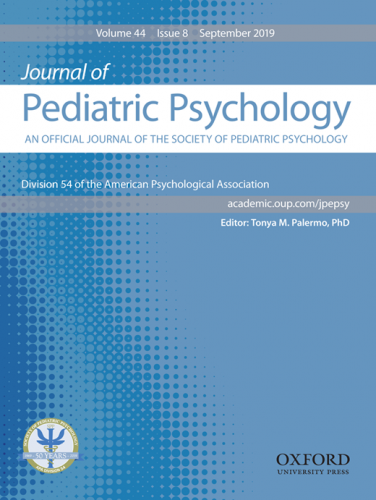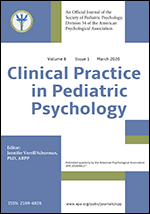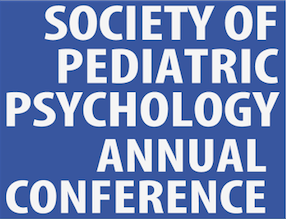Commentary on Training in Pediatric Psychology
By Kevin A. Hommel, PhD
“Pediatric psychology” refers to the integrated field of science and clinical work in which the principles of psychology are applied within the context of pediatric health-related issues. The field aims to promote the health and development of children, adolescents, and their families through use of methods and techniques that have been empirically validated. As such, one must obtain specialized training in psychology, research methods, and child health-related issues in order to become a pediatric psychologist. This generally involves coursework, clinical practica, and supervised research experience. The majority of this specialized training occurs in graduate school, clinical internship/residency, and postdoctoral fellowships, although a careerlong commitment to continual education and training is one of the ethical principles upon which professional psychology is built. There are several training-related issues that should be considered by individuals who are interested in becoming pediatric psychologists. This document is meant to provide a brief overview of some of the issues that are relevant to training at various points in one’s academic career. Readers are strongly encouraged to read the articles cited in the following sections, as these contain formal recommendations provided by various training-related task forces convened by the Society of Pediatric Psychology (SPP).
Training opportunities for high school students that desire a career in pediatric psychology are limited; however, it can be beneficial to start learning about the behavioral/social sciences in general. Taking a course in psychology or sociology can provide an introduction to these broad fields. In addition, it is sometimes possible to volunteer at a children’s hospital, mental health facility, or university psychology department in some capacity that will allow contact with patients or involvement in research (e.g., data entry).
As early as possible in their undergraduate careers, it is important for individuals to structure their coursework and experiences to prepare them to be competitive for acceptance into a graduate program in professional psychology. Majoring in Psychology will provide this background; however, a degree in Psychology is not necessary as long as the prerequisite coursework for graduate training is completed. Elective classes in developmental, child/adolescent, and health psychology allows individuals to obtain theoretical grounding in the field that will be the focus of graduate coursework. In addition to coursework, practical experience as a research assistant in a pediatric psychology lab allows one to gain invaluable basic training in research methodology and (potentially) contact with patient populations. Such experiences are commonly gained in university psychology departments (including counseling and school psychology departments), research/teaching hospitals, and University Affiliated Programs.
Beyond coursework and research experience, it is also important to build relationships with at least three professional psychologists who can write strong letters of recommendation when it comes time to apply to graduate programs. These individuals should be able to comment on the applicant’s knowledge base, research skills, potential for clinical work, and overall workethic. University faculty members frequently serve as referees for applicants, as do supervisors of practicum or volunteer experiences at hospitals or in research settings. As a general rule, faculty members who teach large course sections are less able to provide detailed letters of recommendations than faculty members who work more closely with the applicant (i.e., in the context of a research lab or specialty seminar).
One of the most important tasks for the undergraduate interested in future graduate training is identification and selection of graduate programs. Selecting appropriate graduate programs for a career in pediatric psychology involves several considerations. The overarching issue to consider, as with psychology graduate programs in general, is the degree of “fit” between the program (i.e., coursework, training opportunities, specialization options, and faculty) and the candidate’s desired training. Pediatric psychologists come from a variety of training backgrounds including clinical, counseling, developmental, school, and both PhD and PsyD programs. Information about differences between various program types are found in articles PhD. vs. PsyD and Clinical vs. Counseling.
Aspects of programs that facilitate development as a pediatric psychologist include the following. First, a faculty mentor who is a pediatric psychologist and/or conducts research in pediatric psychology or research that can easily extend into the pediatric psychology realm is a key to obtaining focused training in research methodology from an expert in the field. Second, many programs offer specialization in child/adolescent clinical psychology, health psychology, developmental psychology, or school psychology that might involve a series of courses, seminars, and workshops. This is not necessarily a requirement to be a pediatric psychologist, but structured training in these areas provides a good base of knowledge for the field. Third, clinical training opportunities in pediatric psychology treatment settings (e.g., children’s hospital, outpatient clinic) are important as means of gaining experience with various pediatric populations. These opportunities as well as the strength and history of the relationship between the graduate program and pediatric facility should be taken into consideration.
A list of graduate programs that offer specialized training in pediatric and clinical child psychology is available at the Directory of Clinical Child/Adolescent and Pediatric Psychology Training Programs website. Although the list provides basic information about graduate programs, the reader is urged to visit specific program websites for the most current information about the various programs.
During graduate school, it is essential that one obtain sufficient depth and breadth of training in clinical practice and research methodology. Specialization in child/adolescent clinical psychology, health psychology, developmental psychology, or school psychology can enrich one’s training in the field of pediatric psychology. It is also important to gain knowledge regarding various pediatric psychology focus areas such as medical illnesses, developmental conditions, health promotion, and injury and illness prevention. Equally important is obtaining experience in work environments that may be considered nontraditional settings for some psychologists such as hospitals, clinics, or centers that specialize in treatment of certain pediatric conditions. Familiarizing oneself with the history of and current literature in pediatric psychology is also an essential task for graduate training. Such information can help the trainee develop a sense for where the field is headed and the various roles pediatric psychologists can fill. A number of excellent resources are available to provide the trainee with this valuable information, including the Journal of Pediatric Psychology, the Handbook of Pediatric Psychology (Roberts, 2003), and The Sourcebook of Pediatric Psychology (Olson, Mullins, Gillman, & Chaney, 1994).
For all APA-accredited professional psychology programs, completion of a one-year internship is a necessary step before graduation. Selecting an internship/residency program is similar to selecting graduate programs: The degree of “fit” between the program and the candidate’s goals are crucial. Factors to consider include the type of rotations offered/required, specific duties on rotations, faculty interests, postdoctoral fellowship opportunities, physical location, and personal/family factors. Ultimately, the best fit will be one in which (a) the trainee receives the experiences that she/he needs and desires for further professional development and (b) the program receives a trainee who can contribute to the clinical and/or research mission of the institution. Readers are referred to the recommendations for graduate training (Spirito et al., 2003) and internship/residency training (Madan-Swain & Wallander, 2003) in pediatric psychology that have been adopted by the Society of Pediatric Psychology.
Shortly after beginning internship/residency, it is time to consider whether postdoctoral work is necessary or beneficial for one’s career goals. Many individuals choose to do a postdoctoral fellowship, though it is not required. Some individuals begin working in a university, private practice, mental health center, or other setting without completing post-doctoral training. Advantages of postdoctoral fellowships include additional depth and focused training in a specific area of research or clinical practice, training in grant writing or specific research methodologies, and/or development of collaborations in various areas of research and practice. Completion of a postdoctoral fellowship may also provide a greater variety of career opportunities, increased future salary potential, and improved future funding opportunities for research or program development. Of particular importance to clinically-oriented trainees, postdoctoral fellowships usually provide opportunities for supervised practice required by most states for independent licensure. Readers are referred to Drotar, Palermo, and Ievers-Landis (2003) for a detailed discussion of postdoctoral training issues and recommendations.
Although not necessary for some career paths in pediatric psychology (e.g., research only positions), pediatric psychologists usually must be licensed or certified to provide mental health services in their respective states/provinces. Licensure procedures vary across jurisdictions, but generally include (a) demonstration of successful completion of a specified curriculum from a graduate training program, (b) some number of supervised hours of service provision, (c) successful passage of the Examination for Professional Practice in Psychology (EPPP), and (d) demonstration of knowledge of state/provincial statutes regulating mental health practice (e.g., State Jurisprudence exams). States/provinces vary in their requirements for licensure in terms of required coursework, thresholds for passage on the EPPP, and number of required pre- or post-doctoral supervised hours. APA-accredited programs generally meet the required criteria for the states/provinces in which they are located. However, graduate trainees are strongly encouraged to discuss their career goals (and plans for licensure) with their training director or mentor to ensure that they are taking the required courses for licensure in the states/provinces in which they hope to be licensed. For more detail about state licensure laws, please see website.
There are a variety of career opportunities for pediatric psychologists. Spirito and colleagues (2003) have discussed a range of career paths and opportunities for pediatric psychologists. Positions in academic medical centers/children’s hospitals, traditional university academic settings, and private practice settings are frequently held by pediatric psychologists. In addition to these more traditional roles, pediatric psychologists also work as independent consultants to pediatricians, schools, and other institutions; researchers within independent research organizations and pharmaceutical corporations; advocates in public policy and government agencies; and in child advocacy organizations. As the field continues to grow, so will the diversity and number of opportunities for careers in pediatric psychology. The interested reader is referred to Mullins and colleagues (2003) for a discussion of training paths and theoretical orientations of pediatric psychologists.
- Drotar, D., Palermo, T., Ievers-Landis, C.E. (2003). Commentary: Recommendations for the training of pediatric psychologists: Implications for postdoctoral training. Journal of Pediatric Psychology, 28(2), 109-113.
- Madan-Swain, A. & Wallander, J. (2003). Commentary: Internship training. Journal of Pediatric Psychology, 28(2), 105-107.
- Mullins, L.L., Hartman, V.L., Chaney, J.M., Balderson, B.H.K., & Hoff, A.L. (2003). Training experiences and theoretical orientations of pediatric psychologists. Journal of Pediatric Psychology, 28(2), 115-122.
- Olson, R.A., Mullins, L.L., Gillman, J.B., & Chaney J.M. (1994). The sourcebook of pediatric psychology. Needham Heights, MA: Allyn and Bacon.
- Roberts, M.C. (2003). Handbook of pediatric psychology (3rd ed.). New York: The Guilford Press.
- Spirito, A., Brown, R.T., D’Angelo, E., Delamater, A., Rodrigue, J., Siegel, L. (2003). Society of Pediatric Psychology task force report: Recommendations for the training of pediatric psychologists. Journal of Pediatric Psychology, 28(2), 85-9



